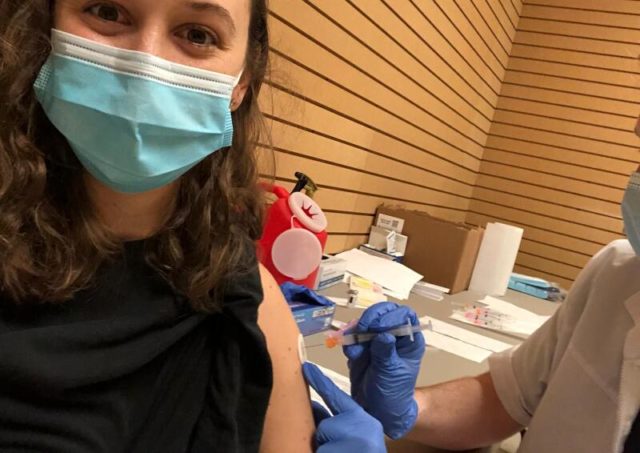“The decision to get the vaccine came down to wanting to move forward, being able to travel, seeing family and friends without constantly worrying, and bringing back some sense of normalcy again.“
AMONG the thousands of health care workers in the US who have been vaccinated against Covid-19, was South African Melissa King.
Speaking to Independent Media after receiving her shot, King said she felt a sense of relief and excitement that she had done something small that would contribute to the world going back to some kind of normalcy.
“The decision to get the vaccine came down to wanting to move forward, being able to travel, seeing family and friends without constantly worrying, and bringing back some sense of normalcy again. When I spoke to my family about it, they were naturally a little hesitant, as was I, but after sharing the knowledge they supported my decision and I appreciated that,” said King.
King, who is in the US on a temporary visa, works as a medical assistant at Randolph Dermatology and Mohs Micrographic Surgery in New Jersey.
“Because of the nerves, I barely slept the night before receiving the vaccine,” said King.
“People can be very loud with their opinions and, despite having made the decision to go through with it, the ’what ifs’ were very much alive and running through my mind the entire time I was in the waiting room filling out the forms.
“The person administering my vaccine made me feel super comfortable and quite happily answered the million and one questions I had for him. I asked if it would be okay to take a picture, and the whole thing was over by the time I had taken it. It was less painful than getting the actual flu shot.”
When asked if she was worried about receiving the vaccine, the KZN-born medical assistant said: “Of course, I was!
“Everyone talks about how it’s too soon, or that we don’t really know what’s inside the vaccine, or even the thought that they may now be able to track us.”
In preparing herself, King said she read the articles and fact sheets on the vaccines and some of the potential side effects.
“I also took the time to speak with other health professionals who had received the vaccine, I got their opinions, and I paid attention to those who were not keen on getting it. I think it comes down to doing what you can to educate yourself on it – the more you know, the easier it will be to make the decision that feels right to you. Ultimately, you have to do the research.
“You cannot listen to rumours, unsolicited stories, conspiracies, and fabricated videos that circulate on social media with no factual validity. It’s weighing the pros and cons of having the vaccine and potentially getting the side effects based on trials done so far versus getting Covid-19, knowing its potential damage and then dealing with the long-term effects that could come from having it.”
Similar to South Africa, the US has prioritised health care workers and the vulnerable to receive the vaccine first. The Center for Disease Control and Prevention (CDC) created a phase-system guideline for the administration and delivery of the vaccine throughout the US.
Based on the system, each state will make the decision on who gets vaccinated first and help allocate the initial limited numbers of vaccines to essential workers.
The phases included Phase 1a: government officials, health care workers and long-term care residents; Phase 1b: non-health-care essential workers; and Phase 1c: people over the age of 65 as well as those with health conditions that place them at a higher risk for severe illnesses from Covid-19.








